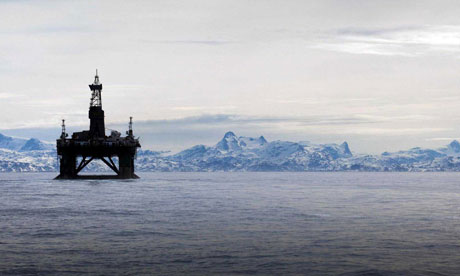The Tax Manoeuvre changes the oil industry but casts shadows on the future production.
In
Log in if you are already registered
The russian oil industry is on the brink of a radical change brought by the new tax reform passed in late November. The main guidelines of the bill are to modernize the downstream segment, increase the export and liberalize the internal gazoline market. All of this, however, will come at the expense of the upstream sector.
Indeed, the new oil tax system will sharply reduce duties on exports but will raise to 13% those on dividens and double those on production. The latter change could backfire, slowing further the oil output, currently declining in the country. To sustain the growth investments should be made in new fields and reserves of both shale and conventional oil (mainly in the Arctic and the far east). However, in order to exploit them, the oil companies need cutting-edge devices and huge loans, extremely hard to get because of the economic sanctions on the technology and banking sectors issued by the West.
As a consequence, the oil output of the Russian Federation is expected to decrease in the next five years. Leonid Fedun, vice-president of LUKoil and second main shareholder, said to the Financial Times last month that the russian output would fall from 525 to 490 million barrels a year within four or five years from now. LUKoil case is exemplar, its net profit in the third quarter of 2014 drop by almost 50 % due to the ruble crisis, and the stop to the joint venture with Total for the development of shale oil in West Siberia announced in September after a new round of US and EU sanctions will probably worsen the situation.
On the downstream side, the “Tax Manoeuvre” prefers to boost crude oil and light refined products exports, thus forcing the refinery system to upgrade and eat shares of market in Europe and Asia. As a matter of fact, excises on fuel oil (a heavy product for old refineries) will sharply increase reaching 100% in 2017 and the refineries that will not renew will shut down. Furthermore, lowering the export tax was an obliged choice in order to avoid that russian companies export through Belarus and Kazakhistan, where duties are cheaper, once the Custom Union is completed.
In 2008, after a similar crisis, some research papers by the Energy Ministry and by the entourage of Igor Sechin (who at the time was serving as Vice-Prime Minister for energy), had showed that the russian output would have slowed and decreased because of the unprofitability of new projects if the tax system had not been reformed. However in Putin’s view the oil generals were already having granted a privileged treatment. As he put it in a meeting with them in 2010 “ you work in the Russian Federation, when you receive a licence to use mineral resources they remain property of the russian people, they are common national property”[1] underscoring quite a disappointment in the way they were conceiving their business. In the end, world oil price started to rise again reaching over 100 dollars per barrel, and hurry over a tax reform vanished. The oil industry scored a goal by achieving a lowering on the export tax from 65% to 60% per barrel and a 66% of the crude rate on all refined products but gazoline (which for economic and political reasons had to stay cheap inside the country) in october 2010. In 2013 the crude export tax was lowered again to 59 and planned to progressively reach 55 by 2017.
With the recent reform the pace of the change has been highly increased. The tax on crude oil will go down to 42% in 2015, 36% in 2016 and 30% in 2017, the tax on refined products will be lowered down to 30% of the crude rate by 2017 and that on gazoline too, breaking a tax of 90% to protect internal prices. The tax on production (Metal Resources Extraction Tax), currently at 493 rubles per ton, will almost double by 2017.
The criticisms that first erupted from the oil generals about the reform quitted after Igor Sechin, Rosneft CEO, was received by the president and ultimately gave his consent. Sechin had previously asked, in a letter to the president, to take back the bill for concerns over the downstream strategy. Without doubt the refinery sector will be modernized and oil companies will benefit largely from the exports, but they will also need to balance carefully these downstream changes with the falling productivity of the upstream sector in order to mantain the output and take advantage of the new large reserves.





